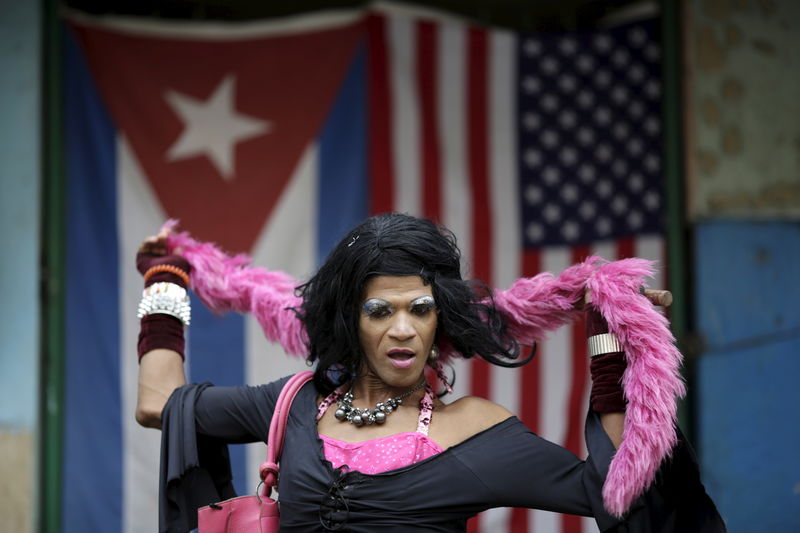By Ueslei Marcelino
HAVANA (Reuters) - U.S. President Barack Obama's historic March visit to Cuba has not fixed all of the thorny issues between the two countries, but it did spark hope among Havana residents that closer ties with the United States will improve their lives.
"I hope everything gets better and that there will be better work and development for our children. Long live Obama," said bricklayer Yoendry Gainsa, 35, holding his daughter while posing in front of the Stars and Stripes and the Cuban flag.
Laboring under a half century-old U.S. trade embargo and cautiously emerging from a Soviet-style command economy that prohibited almost all private enterprise, many Cubans find it hard to make ends meet.
Pictures taken by a Reuters photographer of regular Cubans in front of a house that had been draped in flags for Obama's March 21 to 23 visit along with snapshots of their thoughts can be found in a Wider Image photo essay at http://reut.rs/1RDPYQX.
Obama's trip, the first by a sitting U.S. president in nearly 90 years, came after he and Raul Castro agreed in 2014 to normalise relations. Since then they have reopened embassies and the United States has relaxed travel and some trade restrictions.
During his trip Obama said the embargo was obsolete and did not serve U.S. interests. He cannot lift trade prohibitions without support from Congress, but Cubans were inspired by his rhetoric.
"This is grand, historical and very positive that the USA has realized after all these years that the embargo is not worth it," said smartly suited Lazaro Roger, 56.
The Republican party, which controls the U.S. legislature, for the most part does not support Obama's policy. Critics of the visit have said it was not rewarded with improved human rights measures by the Cuban government, which stifles dissent.
Fidel Castro, who led the revolution that overthrew a pro-American government in 1959 and who stepped down as Cuba's president in 2008, was scornful of Obama's "honey coated" exhortations to Cubans to put the past behind them.
For others, like unemployed Yaneisy, sporting a punk hairstyle that is a sign of Cuba's growing tolerance for youthful diversity, Obama's presence meant little to their daily lives. "I don't care," said the 28-year-old, who declined to give her last name.
But for others in Havana's colonial-era streets, Obama's visit inspired optimism.

"This is very good, the perfect union between two countries, and everything changes now for the better," said musician Raciel Cardoso, 30.